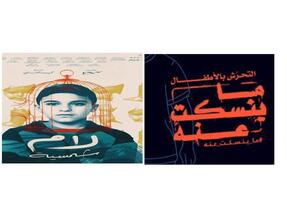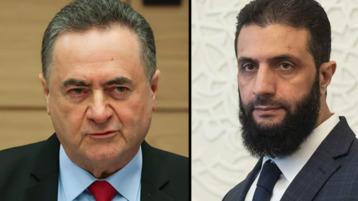-
Professional press speech as a way to tackle Corona epidemic

The whole world today faces a significant challenge imposed by the spread of the Covid-19 virus, which has become known internationally as the Corona epidemic. Corona epidemic
Everyone is facing a great responsibility that is manifested in the blockade of this epidemic and the conduct of responsible awareness campaigns to ensure the correct information reaches the recipient, and to reduce misleading rumors that have had the worst impact on people and to the degree that exceeds the negative effect of the virus itself.
From this standpoint, many political and artistic personalities and a large number of celebrities have sought to use their popularity and influence to raise awareness among the general public, and to draw attention to the best ways to treat or prevent the virus and reduce its risks.
However, the media bears a double moral responsibility, because the diversity of the media and the spread of social media, which have become a media platform, have enabled people of all affiliations, whatever their degree of awareness, to contribute to making media content, and publishing it in their own space on these media. With which the journalist is standing before a real test, he tests his professionalism and his ability to manage the event well. Corona epidemic
Levant highlights the role of journalists in facing the Corona epidemic, and the nature of the speech that the media should have to raise awareness among the people on the one hand, and facilitate the work of the responsible authorities so that they can block the virus, and keep it under control as much as possible on the other hand.
Professionalism of the journalist in the face of the epidemic
Objectivity is one of the essential rules of journalistic work, and it is related to credibility and providing the correct information away from personal positions or narrow affiliations that might cause the journalist to fall into the trap of bias, or publish inaccurate news, and thus mislead public opinion.
These rules are related to the profession of journalism in general, but the responsibility of the media is doubled in times of crisis. In light of the current Corona crisis, it is the responsibility of journalists to provide useful information and not to be driven behind the media scare.
About the journalist's professionalism and its role in facing corona, Dr. Mona Magdy Farag, associate professor at the Faculty of mass communication at Cairo University told Levant: “The journalist should investigate the accuracy of his news and not underestimate or aggravate the news, which is mainly his responsibility, but in times of crisis his responsibility is doubled.”
Faraj believes that the burden lies with the journalist more in crisis because it is always linked to media scare and rumors. Corona epidemic
In the same vein, Syrian journalist Sakher Edris told Levant: "The panic attack that terrified people, imposed on the journalist a social responsibility - with my reservations on the methods of censorship followed by some countries - the role of the journalist is summarized by explaining what people do not know."
Edris explained that the journalist should seek the help of doctors and scientific methods to be able to communicate the correct information that is absent from people.
News verification methods:
The journalist has a responsibility to investigate the credibility of the sources and communicate the right information. But how can a journalist get this information, especially as the topic takes a more complicated approach in light of the flow of rumors in times of crisis?
In her answer to this question, says Dr. Mona Magdy Farag: “The journalist should investigate the source of the information that reaches him and the extent of the credibility of this source, and try to obtain multiple sources for the same news. He should also examine the context of this information and not be satisfied with data or numbers and statistics.”
The assistant professor at the Faculty of mass communication at Cairo University told the Levant that the journalist should put himself in the receiver's seat, and answer questions that could revolve in his imagination, away from the language of data and numbers, as is the case with the Coronavirus. He should explain to him the nature of precautionary and preventive measures, and not be satisfied with transferring statistics and numbers.
Dr. Mona Magdy Farag believes that the most critical questions that concern people, for example, are "the number of people who have been infected, the way they occurred, in addition to the fate of these people and the body they were referred to after the injury occurred, and the way to deal with these cases, were the patients isolated For example? ", highlighting that what is required of a journalist is to examine the story as far as possible, to get the highest amount of information to the recipient.
Finally, she stressed the need for a "professional approach to dealing with this type of topic" and that a journalist should not "gasp behind the fame and journalistic precedence," as well as try to relate events to each other according to a logical sequence, "without jumping to the results directly so that people do not panic in such conditions, stressing the role of the press establishment in achieving community accuracy and safety. Corona epidemic
Corona and the journalist's role in fighting hate speech:
Unfortunately, corona disease has been linked to bullying towards a particular group of people, and the topic has become a source of vulgar jokes that are incompatible with the ethics of journalism. The media has participated in deepening hate speech through its coverage of what is being circulated on social media.
Sakher Edris, the Syrian journalist, believes that "exceptional cases of diseases or epidemics make the public discourse take a racist approach, and this is what we have observed in light of the spread of corona, which has made a certain category, the Asians, vulnerable to bullying, unfortunately, of course."
Edris emphasized that this kind of discourse is evident through the jokes and hashtags that flooded social media, and which specifically target Asians and Chinese.
In this context, the Syrian journalist stressed the importance of the pioneering journalist’s role in society and that he “should be alert to the selection of his vocabulary, and not to be drawn behind these hashtags and jokes, so that the media material does not depart from its primary educational purpose and turns into a platform for incitement or spreading hate speech towards this or that group." Corona epidemic
There is no doubt that journalism becomes a significant burden in light of crises. The journalist bears the responsibility of keeping abreast of the news and its developments and is supposed to surround all aspects of the topic and explain to the recipient the implications of this issue, on the human, legal and medical level, as well as the double responsibility he faces professionally.
Corona is no longer an epidemic, the consequences of which are limited to the number of injuries and preventive measures. Instead, it has turned into a global crisis that has affected the global economy and international relations.
All of the above requires the journalist to take a unique professional engagement, to prepare public opinion to avoid the catastrophic consequences of this epidemic and to reduce the severity of these results, which are expected to last a while before the whole world overcomes this ordeal. levant
By: Noor Martini levant
You May Also Like
Popular Posts
Caricature
BENEFIT Sponsors Gulf Uni...
- April 17, 2025
BENEFIT, the Kingdom’s innovator and leading company in Fintech and electronic financial transactions service, has announced its sponsorship of the “Innovation and Sustainable Technology Solutions Competition (GU - IST Solutions), hosted by Gulf University at its main campus.
This strategic sponsorship reflects BENEFIT’s active role in advancing technological innovation and fostering sustainable solutions to future challenges. It also seeks to empower Bahraini youth by enhancing their skills, capabilities, and competitiveness in innovation and solution development—contributing meaningfully to the broader goals of sustainable development across all sectors.
As part of BENEFIT’s active involvement in the competition, the company has announced that Hanan Abdulla Hasan, Senior Manager of Public Relations and Communication, will serve on the competition’s supervisory committee. Her upcoming participation reflects BENEFIT’s forward-looking commitment to championing academic and professional excellence.
Commenting on the occasion, Hanan Abdulla Hasan, Senior Manager of Public Relations and Communication at BENEFIT, said, “We are privileged to support this pioneering initiative, which aligns seamlessly with BENEFIT’s enduring commitment to fostering innovation and nurturing the potential of Bahrain’s youth. Our participation is rooted in a deep sense of social responsibility and a firm belief in the pivotal role of innovation in shaping a sustainable future. Through such platforms, we seek to empower the next generation with the knowledge, skills, and foresight required to develop impactful solutions that address future challenges, in line with the United Nations Sustainable Development Goals 2030.”
Dr. Aseel Al Ayash Dean of the College of Engineering in Gulf University commented, “We extend our sincere gratitude to BENEFIT for their generous sponsorship and support of the Innovation and Sustainable Technology Solutions Competition. This contribution plays an instrumental role in helping us achieve the strategic goals of this initiative, namely, cultivating a culture of innovation and sustainability, encouraging efforts that address the imperatives of sustainable development, and enhancing the practical and professional capabilities of our students and participants.”
The event will bring together a diverse spectrum of participants, including secondary school students, university undergraduates, engineers, industry professionals, entrepreneurs, academic researchers, and subject matter experts representing a wide range of disciplines.
The competition seeks to inspire participants to develop and present innovative, sustainable technologies aimed at addressing pressing environmental, social, and economic challenges. It encourages the formulation of business models that integrate advanced technological solutions with core principles of sustainability. Moreover, it serves as a platform for emerging leaders, entrepreneurs, and innovators to contribute to the advancement of the Sustainable Development Goals, promote the ethos of responsible technology, and demonstrate its transformative potential across various sectors.
Attendees will have the opportunity to view a series of project presentations submitted by participants, covering diverse areas such as eco-friendly product design, smart and sustainable innovations, renewable energy technologies, water conservation and management, waste minimisation and recycling, green architectural solutions, and sustainable transportation systems. Outstanding projects will be formally recognised and awarded at the conclusion of the event.
opinion
Report
ads
Newsletter
Subscribe to our mailing list to get the new updates!





















